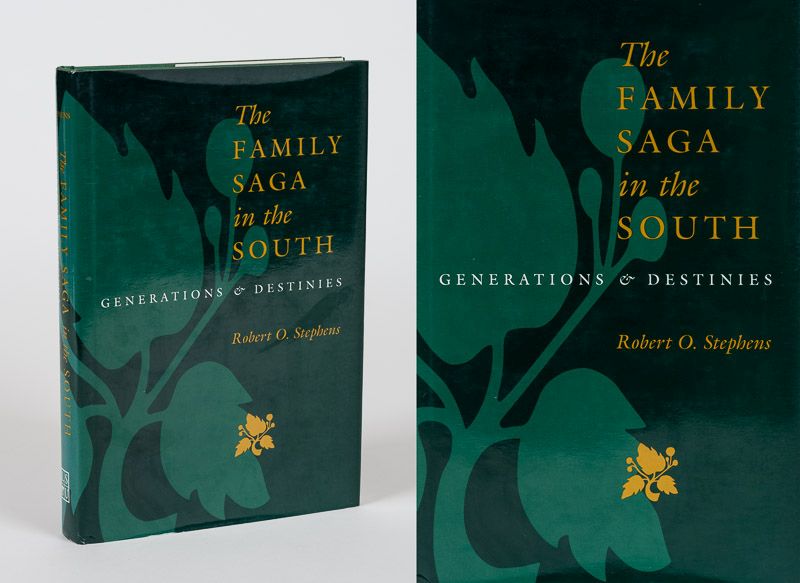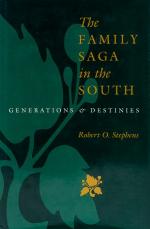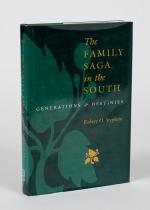Stephens, The Family Saga in the South.
The Family Saga in the South.
Baton Rouge and London, Louisiana State University, 1995. 22 cm x 32 cm. XII, 233 pages. Original Hardcover with original dustjacket in protective collector’s mylar. Excellent condition with only very minor signs of external wear.
The first full realization of the family saga in the southern tradition, Stephens says, was George Washington Cable’s The Grandissimes (1880). Stephens gives an extensive tour of twentieth-century authors who have used and further developed the southern family saga. He examines the works of writers such as T. S. Stribling and William Faulkner, who after the First World War reinterpreted the Civil War and its consequences in terms of a displaced inheritance; Caroline Gordon, Allen Tate, and Andrew Lytle, who built on the displacement motif to show family decline; Katherine Anne Porter, Eudora Welty, and Shirley Ann Grau, who in focusing on family stories transmitted by women explored implications of the matriarchal-patriarchal conflict resonating through generations; and Margaret Walker, Alex Haley, Ernest Gaines, and Toni Morrison, who showed the black family’s struggle to find a place in history and later in memories of legendary Africa. Authors whom Stephens identifies as third-generation writers, such as Reynolds Price and Lee Smith, reach beyond history in their sagas to find moments of mythic vision, or they reduce family and public history to the pastless present of popular culture. The literary tradition of the family saga thrives in the South today, Stephens says, because there exists an operative context in which to read the saga: namely, some version of providential order, which affords glimpses of purpose beyond the daily struggles of generations. The Family Saga in the South will make an inestimable contribution to understanding this vital tradition in southern letters while pointing the way for study of the genre in other cultures. (from the Back Cover).
- Language: English
- ISBN: 0807119881
- Inventory Number: 44175AB
EUR 68,--
© 2025 Inanna Rare Books Ltd. | Powered by HESCOM-Software












